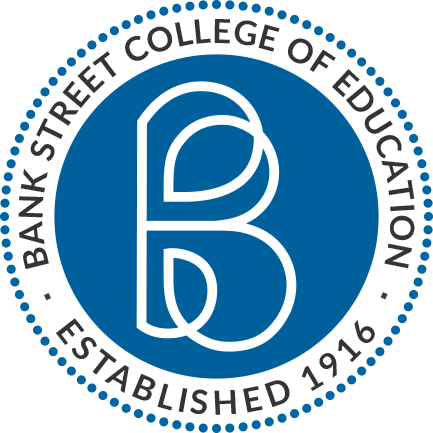-

Selected Research Supporting Sustainable Funding for Quality Teacher Preparation
Bank Street College
In countries where school systems have improved dramatically, pre-service teacher education has become more integrated with the regular school system. Aspiring teachers, while studying for their certification, are paid to practice under the guidance of an effective classroom teacher for a full year before seeking certification. Increasingly, evidence from the U.S. also indicates that such a model is effective. In fact, four persistent teacher quality challenges facing schools and districts can be positively impacted through the establishment of funded year-long pre-service clinical placement.
-

The ESSA Opportunity for Residencies
Bank Street College of Education
The Every Student Succeeds Act (ESSA) provides states and districts with a renewed opportunity to strengthen the quality of teaching and learning in schools by explicitly incorporating well-designed year-long pre-service co-teaching placements (“residencies”) into state ESSA applications as an allowable and encouraged use of funds. While “preservice” teacher preparation is not frequently conceptualized as an allowable use of these federal funds, when well designed preparation programs include funded, year-long co-teaching residencies, they address many of the goals contained within ESSA and contribute to the systemic educational improvements sought by states and districts.
-

For the Public Good: Quality Preparation for Every Teacher
Karen DeMoss
The Sustainable Funding Project at Bank Street College of Education was established to address a significant problem in public education: how to ensure that all aspiring teaches are prepared through affordable, high-quality programs so that every teacher enters the profession ready for the demands of 21st century classrooms. This report tackles quality sustained clinical practice as one part of the affordability question.
-
![Leading the Future of Museum Education [Denver Convening Report] by Brian Hogarth Leading the Future of Museum Education [Denver Convening Report] by Brian Hogarth](https://educate.bankstreet.edu/faculty-staff/1000/thumbnail.jpg)
Leading the Future of Museum Education [Denver Convening Report]
Brian Hogarth
In late-May, 2015, over one hundred museum education directors and program managers, along with several higher education faculty and consultants, met at the History Colorado Center in Denver to discuss the challenges and opportunities facing the profession. This report provides the highlights from the talks and discussions that took place, some of the principle findings from written activities and evaluations, as well as insights from follow-up meetings that took place in December 2015 in New York and Denver and in May 2016 at the American Alliance of Museums Conference in Washington DC. Also included is a list of resources related to some of the ideas discussed.
-

Using ERP Reflective Language and Relationship Based Practice Principles to Address Post-Election Anxiety in Young Children
Lesley Koplow
Helps teachers think about how they can ease anxiety in young children worried about what they have seen and heard during and after the presidential election.
-

Learning to Teach: Observing and Reflecting. Part 1: Routines and Transitions
Nancy Nager
In this video series you will get a hands-on look at how beginning teachers learn to closely observe children and engage in reflective conversations about children, materials, the classroom environment and themselves. The video has three parts: Classroom routines and transitions, dramatic play, and early childhood materials.
-

Learning to Teach: Observing and Reflecting. Part 2: Dramatic Play
Nancy Nager
In this video series you will get a hands-on look at how beginning teachers learn to closely observe children and engage in reflective conversations about children, materials, the classroom environment and themselves. The video has three parts: Classroom routines and transitions, dramatic play, and early childhood materials.
-

Learning to Teach: Observing and Reflecting. Part 3: Early Childhood Materials
Nancy Nager
In this video series you will get a hands-on look at how beginning teachers learn to closely observe children and engage in reflective conversations about children, materials, the classroom environment and themselves. The video has three parts: Classroom routines and transitions, dramatic play, and early childhood materials.
-

12 Museum Theorists at Play
Marian Howard, Lauren Appel, Nicole Ferrin, David Vining, Katherine Hillman, Marissa Corwin, Berry Stein, Nicole Keller, William Elliston, David Bowles, Tiffany Reedy, Kathryn Eliza Harris, and Liat Olenick
Introduction by Lauren Appel
1. Learning by Do-weyan, by Marian Howard, with Nicole Ferrin
2: Dewey Defines Himself and Education, by David Vining
3. Benjamin Ives Gilman: Arts in People’s Lives, by Katherine Hillman
4. John Cotton Dana: The Social Construction of Museums, by Marissa Corwin
5. Piaget in the Art Museum: Constructing Knowledge Through Active Engagement, by Berry Stein
6. Lev Vygotsky: The Social Aspects of Learning, by Nicole Keller
7. Paulo Freire: Literacy, Democracy, and Context, by Nicole Keller
8. Maxine Greene: Aesthetic Education, by Lauren Appel
9. Howard Gardner and Multiple Intelligence Theory: A Practical Application of Entry Points in Museum Programming, by Bill Elliston
10. Mihaly Csikszentmihalyi: Finding the Flow, by David Bowles
11. George Hein: Metaconstructivist, by Lauren Appel
12. David Carr: A Poetics of Questions, by Tiffany Reedy
13. David Sobel: Please in My Backyard, by Kathryn Eliza Harris
14. Connecting the Dots, by Liat Olenick -

Using Toys to Support Infant-Toddler Learning and Development
Gabriel Guyton
Being mindful of the basic principles of child development and the role of play, teachers can intentionally select toys to meet young children's unique needs and interests, supporting learning.
-

Challenging the Norms: Democracy, Empowering Education, and Negotiating the Curriculum
Joshua Sean Thomases
Discusses the principles of a democratic classroom, and how implementing these principles can create a powerful environment where extensive and in-depth learning truly happens.
Printing is not supported at the primary Gallery Thumbnail page. Please first navigate to a specific Image before printing.


